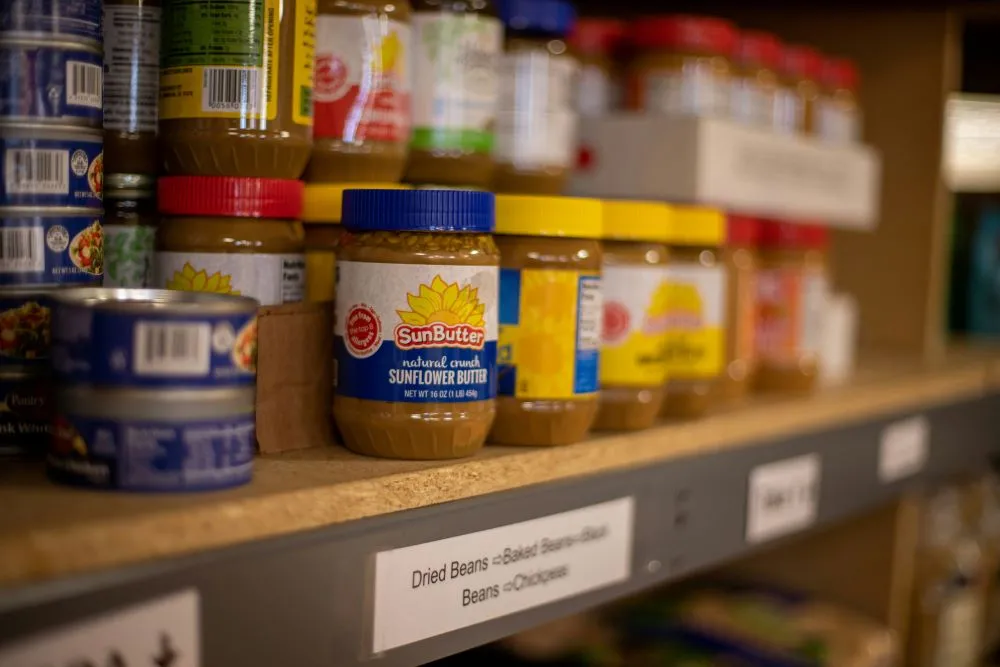Need Help With Food Costs After a Cancer Diagnosis?

Photo by Aaron Doucett for Unsplash
If cancer costs are making it hard for you or someone you know to access sufficient and nutritious food, help is available.
Facing cancer is hard. It’s not just about being sick. A cancer diagnosis can make so many things more difficult for survivors and their loved ones, especially when we talk about eating well. Not having enough to eat and having limited access to healthy food is called food insecurity.
Food insecurity can impact anyone. A 2022 study in the Journal of the National Cancer Institute suggests that between 17% and 55% of people diagnosed with cancer could face this problem.1 While food insecurity is not caused by cancer, the impact of a diagnosis and treatment can affect economic and food security.
Many people experience fear that they cannot access healthy foods or may not have adequate food before a cancer diagnosis. This can be even more taxing after a diagnosis. When people living with cancer experience food insecurity, their loved ones and caregivers can be affected as well.
Here are 5 resources that can help:
- Cancer Support Helpline – If you or someone you love is impacted by a cancer diagnosis and experiencing food insecurity, call our Helpline at 888-793-9355, or contact a Helpline navigator via our live web chat service. The Helpline is staffed by trained navigators who can provide referrals and resources specific to your needs and your location. This includes financial navigation for callers who are seeking help with their cancer-related treatment expenses.
- Supplemental Nutrition Assistance Program (SNAP) – SNAP is a government-sponsored program that provides funding for families and individuals to purchase food. SNAP is based on household income and has different benefit amounts based on a person’s or family’s level of need. SNAP can help make it more affordable to obtain healthy foods, leading to a more balanced and nutritious diet. Find out more about SNAP eligibility and how to apply.
- Food pantries – Food pantries are local organizations that collect and distribute food items to those who need them. Food pantries can provide staple foods with high nutritional value. Pantries also work to include healthy diet options and may have additional resources or opportunities for food access. Search for local pantries, food banks, and other food help.
- Dietitians/nutritionists – A registered dietitian (RD) is an expert on diet and nutrition. Some RDs are certified to work with people with cancer. These dietitians serve as certified specialists in oncology nutrition, or CSOs. Some CSOs are included as part of one’s cancer care team. Other CSOs may or may not be covered by insurance. Check with your healthcare provider to see if there is an RD or CSO on your cancer care team. You can also search for an oncology dietitian near you.
- Social workers – Oncology social workers provide support to cancer patients and their families. Specifically, they can help with emotional and financial concerns, and find ways to improve the quality of life of cancer patients and their loved ones. If you are interested in connecting with an oncology social worker but are not sure how to do so, talk to your oncologist or healthcare team about your needs. Often, oncology social workers are key members of cancer care teams. Read more about how oncology social workers can help after a cancer diagnosis.
Eating healthy is important at every step in the cancer experience. Food insecurity can make a cancer diagnosis even more stressful. The good news is there are resource programs and healthcare professionals in the community that can help. You do not need to face these challenges alone.
This blog was originally published in February 2024 and has been updated.
- 1
Raber M, Jackson A, Basen-Engquist K, et al. Food Insecurity Among People With Cancer: Nutritional Needs as an Essential Component of Care. J Natl Cancer Inst. 2022 Sep 21;114(12):1577-1583. doi: 10.1093/jnci/djac135